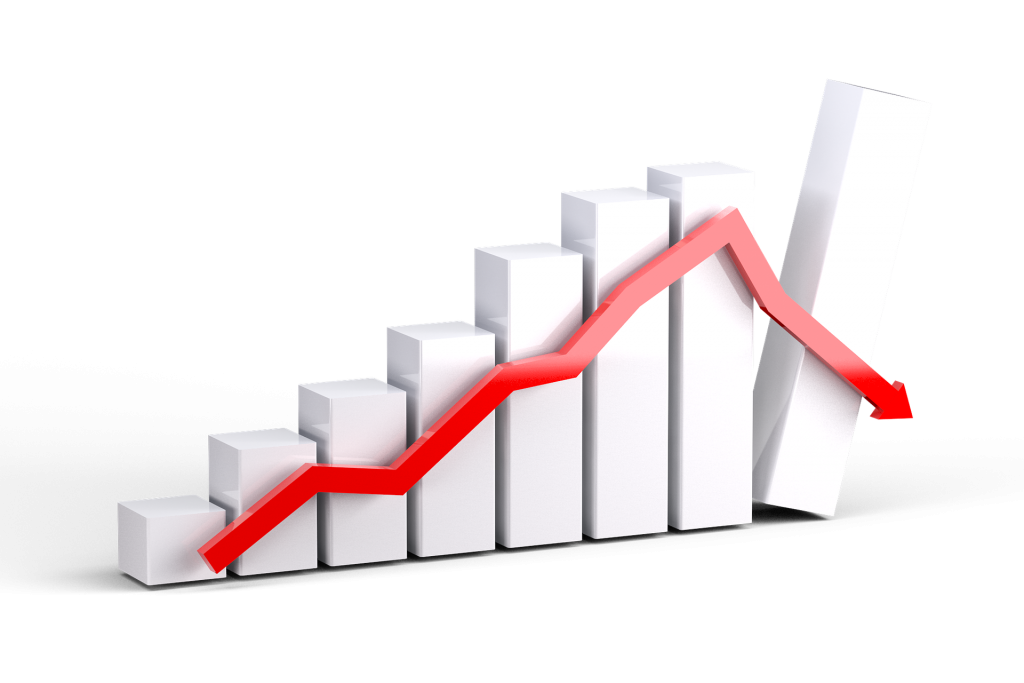You may have concerns for your investments regarding the 5% fall in the FTSE 100 index since the beginning of this week, following the spread of the COVID-19 virus into Europe. One of our key investment partners has provided the commentary below on the current situation. It explains why the impact the virus is having on the market should not give rise to a recession, with the potential of market recovery in Q2 this year and beyond, a view which is shared by many commentators if the outbreak is contained relatively quickly. It is important to remember that consumer consumption has not disappeared, it has merely been “postponed” following factory closures and breaks in the supply chain in efforts to restrict the spread of the virus. This delaying of economic activity may well give markets a boost in forthcoming quarters as economies recover.
However, while we are experiencing market volatility, try to remember that any investment you have made is based upon a medium to long term strategy, as part of your overall financial plan. We are here to ensure the continued suitability of the selected investments and vehicles that are recommended to you, based upon your time horizon, appetite for risk and capacity for loss.
If you can guess what film the “It can’t rain all the time” quotation comes from you might get a gold star!
“Uncertainty about the coronavirus has increased in recent days with the spread of cases to Italy and South Korea in particular causing some alarm. Our view remains that this is a deflationary shock to the global economy.
There are two aspects to it, both of which remain difficult to quantify at this stage. The first is the hit to demand from the lockdown of several Chinese cities, and the lack of travel. The second is the interruption to global supply chains. The starkest indication of the difficulty of quantifying both aspects is probably the statement released by Apple on February 17th which simply stated that the company does not expect to meet its revenue guidance for Q1 but gave no indication of what its new guidance was. If the largest company (by market capitalisation) in the world cannot quantify what this is doing to its own business it remains a challenge for outsiders to calculate it for any company or economy.
We are looking at a variety of indicators to help determine our view on how this crisis is evolving. First, how the crisis is evolving in China remains critical to understanding how it will evolve globally. Here the main question is about whether the supply chain is back up and producing in a variety of industries. We know that even those factories that have reopened have struggled to get up to prior production as many workers have not returned to work. We understand that Foxconn, which makes iPhones, is offering signing on bonuses to entice new workers. Our view is that indicators which are very sensitive to Chinese manufacturing will help tell us when manufacturing is starting to ramp up again. The Australian dollar exchange rate is a very good indicator of that. It has been weak so far in 2020. If it reverses course and starts to strengthen that will be a good sign.
Other indicators to watch include the Chinese currency, the renminbi (RNB) It has weakened to 7.01 per US dollar currently. If, as it is likely to do, the Chinese government makes moves to stimulate its economy then it is possible that the RMB will weaken further. This could have some geopolitical consequences given the ongoing negotiations between the US and China over tariffs and trade.
At the global level it is important to see how both the stock markets and the bond markets are reacting. There had been a disconnect with bond yields declining and yield curves flattening, an indication of worries about global growth prospects, even as the stock market was continuing to rise. The sharp fall in equity markets on Monday 24th February suggests the two markets are becoming more aligned.
Going forward from here we would expect more stimulus announcements from China and likely we will see other countries following suit. The spread to Italy could bring the ECB into play if things deteriorate further. The market is also beginning to price in the US Federal Reserve cutting interest rates in the summer.
Although it is likely that as the virus is brought under control there will be a strong recovery in manufacturing and supply chains will recover, some of the lost demand will not be recoverable. For example, the Lunar New Year is an important time for travel and tourism. Its interruption due to the crisis will not be replaceable by future demand because it is not possible for people to reschedule holidays taken at that time of year. Hence the hit taken by airline and hotel companies.
Overall, we expect companies to begin to quantify the hits to their businesses over the next month. We will see significant reductions to earnings estimates in coming weeks. But if there is more stimulus from policy makers we expect there to be confidence about a recovery in Q2 and beyond which should mean it is unlikely that there will be a recession or deep market”.



